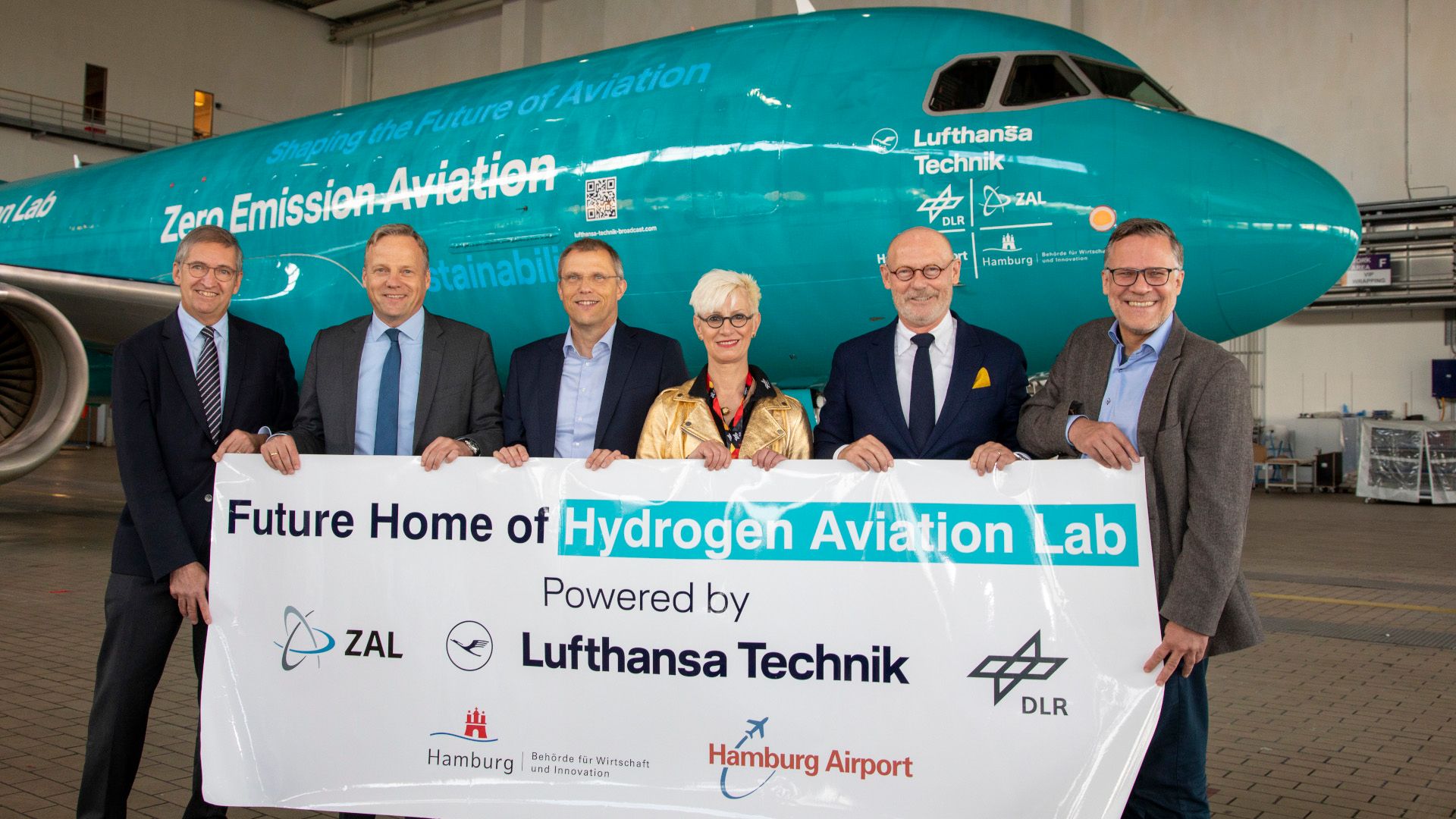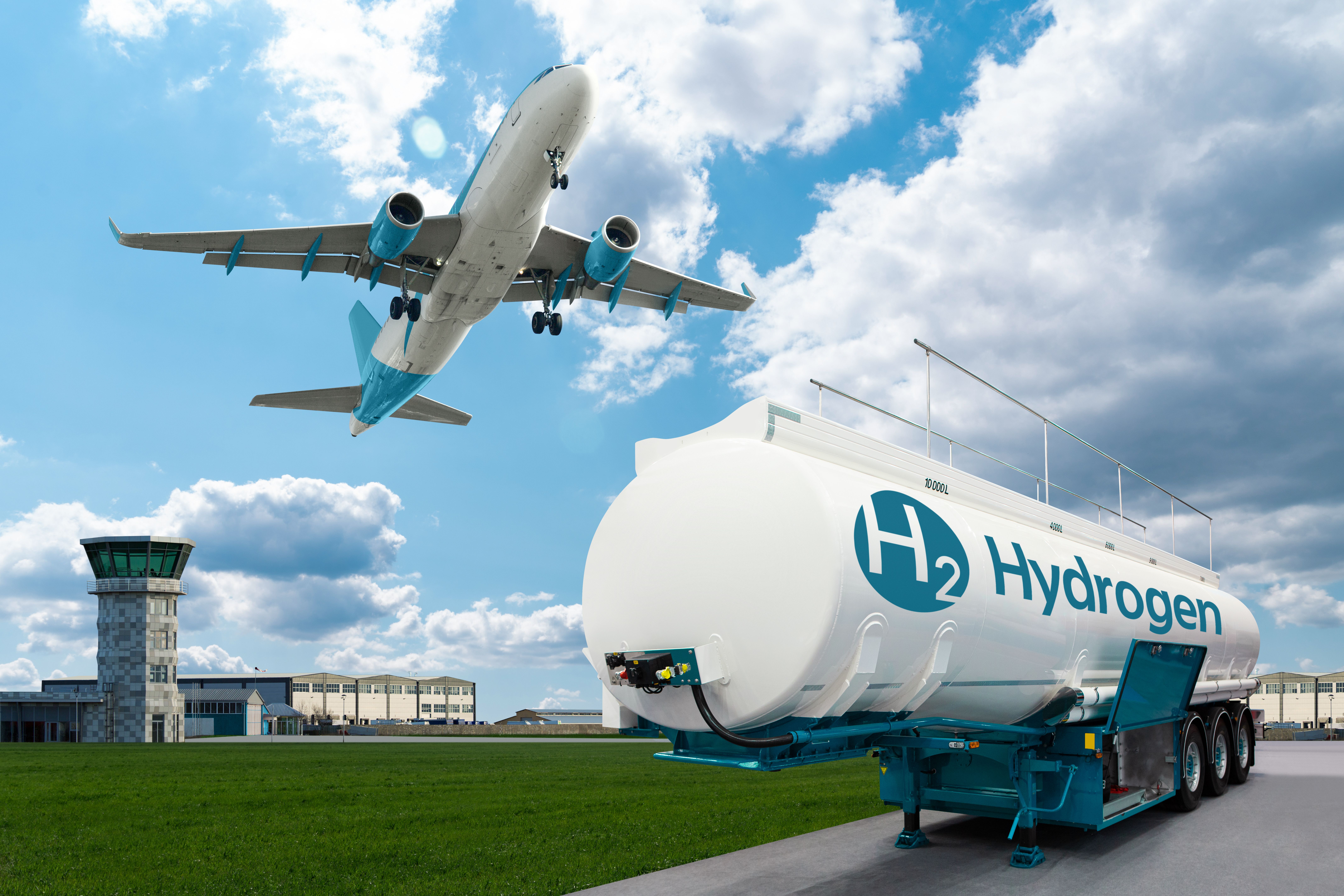Germany’s Hamburg Airport is continuing to invest in sustainable aviation with its support of projects involving aircraft flying with hydrogen fuel. The airport is partnering with Lufthansa Technik, an aircraft maintenance, repair, and overhaul service provider for commercial aircraft converting to VIP and special mission aircraft.
The company said the collaboration would make the German aviation industry suitable for sustainable aviation fuel (SAF). It comes as Hamburg Airport has become known for utilizing renewable diesel fuel for all of its diesel ground vehicles.
An onboard laboratory
Lufthansa Technik said it will test different processes to observe the handling of hydrogen technology over the next two years. Alongside Hamburg Airport, the company will also work with the German Aerospace Center and the Center for Applied Aeronautical Research to facilitate the testing. The city of Hamburg provided the funds for this initiative. The tests will be conducted in a unique laboratory, according to the company.
“For this purpose, an aircraft of the Airbus A320 family will be converted into a stationary laboratory at Lufthansa Technik’s base in Hamburg. Within this lab, the partners want to test the effects of Liquid Hydrogen (LH2) on maintenance and ground processes.”
The laboratory onboard the three-decade-old aircraft, known as the Hydrogen Aviation Lab, will feature a full suite of testing systems, a tank for liquid hydrogen, and a fuel cell that is paired together with supporting ground-based hydrogen infrastructure.
Photo: Lufthansa Technik
The lab will help prepare Lufthansa Technik’s partners to handle and provide maintenance to aircraft that use hydrogen fuel, which are expected to enter service in the middle of the next decade. It will additionally promote the development of future hydrogen-powered planes with the optimization of standard procedures and safety protocols during maintenance work during testing.
A game-changing testing facility
The company also expects that the lab will address solutions to the length it would take to refuel aircraft with liquid hydrogen based on current technology. The findings will be valuable, considering airlines try to minimize aircraft turnaround times as much as possible. Simulators of the Hydrogen Aviation Lab are also expected to be developed to assist researchers further.
Image: Sharfsinn/Shutterstock
Although the aircraft cannot fly anymore, the company said it can still be transported on the ground.
“While this Airbus A320 will no longer be taking to the skies, it is capable of being towed to locations at the Lufthansa Technik base and Hamburg Airport to enable real-world research of ground-based processes,” the company explained.
Investing in sustainability
Lufthansa Technik said Hamburg’s location will allow its partners to become international leaders in hydrogen fuel being used in the industry. Since 2016 Hamburg Airport has promoted sustainability from the ground by powering its diesel vehicles with Neste MY Renewable Diesel, a fuel made from 100% renewable raw materials.
When the airport announced its partnership with Neste seven years ago, it became the first international airport in the world to switch its diesel vehicles to renewable fuel.
“We have been using sustainable fuels for our diesel fleet at Hamburg Airport since 2016 and are thus playing a pioneering role. Almost all of our vehicles on the apron are already running on regenerative drives such as electric, solar and soon also hydrogen,” said Peter Zonneveld, Vice President of Sales for Neste’s Renewable Road Transportation.
Sources: Lufthansa Technik (1), (2), Neste





